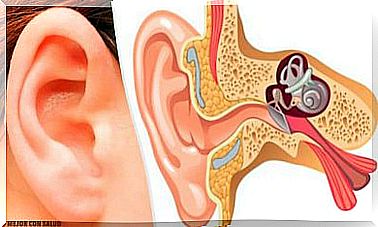Asthma In Pregnancy
Asthma in pregnancy is a risky disease for both the fetus and the mother. It is estimated that between 3 and 6% of the world population has the disease, which makes it a very common condition.
Asthma is a blockage of the smallest parts of the airways. This obstruction causes difficulty in performing respiratory mechanics, especially for expiration, and has as its substrate the inflammation of the small bronchi.
Among pregnant women, asthma is the respiratory disease that most often complicates a pregnancy, as this study published in the Spanish Journal of Allergology and Clinical Immunology points out . According to statistics, between 4 and 7% of pregnant women have complications associated with asthma at some stage of pregnancy, although it is very unlikely to manifest itself during childbirth.
The worst time is usually between 17 and 24 weeks of pregnancy. This is at the end of the second trimester. During this period, the largest number of consultations of pregnant women in emergency services has been registered. On the contrary, the fewest number of consultations for this reason are located in the last month prior to delivery.
Consequences of asthma in pregnancy
If the asthmatic pregnant woman is not properly controlled, complications may appear in her health and that of the fetus. The key situation is the lack of oxygen. The oxygen that the mother has circulating in her blood is what she shares with her baby, and the decrease in her income will affect both.
Asthma in pregnancy, as evidenced by this research published in the Journal of Asthma , is capable of causing in the mother:
- Hyperemesis gravidarum: it is the appearance of intense vomiting and for a long time. It’s not your typical first trimester morning sickness. Here the episodes are frequent and cause weight loss.
- Preeclampsia : Also called toxemia of pregnancy. It is a syndrome with which the mother’s blood pressure increases, edema is caused by fluid retention and there is loss of protein in the urine (proteinuria).
- Gestational hypertension : it is the increase in blood pressure figures in the pregnant woman.
- Preterm labor: Although it is not common for asthma symptoms to appear during the time of delivery, labor can be advanced because of asthma.

And in the baby, pregnancy asthma can cause:
- Intrauterine growth retardation : the constant lack of sufficient oxygen causes the fetus to grow more slowly, so it may be smaller than expected for its gestational age.
- Low birth weight : associated with intrauterine growth restriction, this is a baby who arrives at the time of delivery without sufficient weight.
- Neonatal hypoxemia : at the time of delivery, the baby may have an insufficient supply of oxygen that causes it to be born with symptoms of lack of it. It will require intensive neonatal assistance with external oxygen supplementation.
- Increased perinatal mortality : if asthma in pregnancy is not controlled, the risks of death of the baby increase.
Asthma Medications During Pregnancy
During pregnancy, it is important to choose with the medical professional which medications can be consumed, according to needs. Not all medicines are safe for mother and baby. Therefore, medical advice is essential.
For asthma, most medications have been proven not to be harmful to a pregnant woman. In fact, it is assumed that uncontrolled asthma during pregnancy is more dangerous than the possible adverse effects of the medications that are used. And so this article published in the Colombian Journal of Pneumology points out .
Allergy desensitization injections are used in some asthmatics to reduce episodes of asthma attacks. If the pregnant woman started these injections before becoming pregnant, then she should continue them. But its onset is contraindicated once the pregnancy is established.
Once the delivery is complete, there are no problems for the woman to breastfeed. Furthermore, asthmatics who have recently become mothers are encouraged not to stop taking their medication while breastfeeding.
How to prevent complications
There are basic steps that women with asthma in pregnancy can take to reduce their risks. This is always accompanied by professional advice and the appropriate medication that the doctors will define.
We tell you what those preventive measures are:
- Do not smoke : Tobacco complicates and worsens asthma, in addition to increasing the risk of congenital syndromes in the fetus.
- Control your triggers : Asthma responds as an acute attack to certain substances that are best avoided. Among them, we can name environments with dust or dust, cigarette smoke and the fur of some animals.
- Respect the follow-up visits : the pregnant asthmatic woman requires more intensive control with the doctors than those scheduled for a normal risk pregnancy.
- Take medications in a timely manner : according to the medical indication, schedules and presentations must be respected. Never self-medicate in these circumstances.
- Be attentive to the warning signs : the doctor will provide the pregnant woman with a list of symptoms that, if they appear, would indicate the need to consult quickly. These symptoms are usually shortness of breath, intense cough that becomes chronic, and fever, among others.
- Manage gastroesophageal reflux : It is common for pregnant women to suffer from gastroesophageal reflux disease. The problem is that reflux can intensify asthma symptoms. Therefore, you should take home measures such as raising the head of the bed, separating the daily meals into smaller parts and delaying the bedtime, allowing about 2 or 3 hours after dinner, as well as avoiding foods that trigger reflux. .
About asthma in pregnancy
Asthma in pregnancy carries considerable risks for both the mother and the fetus. Therefore, if it occurs, it is important to consult your doctor and follow the recommended treatment. In addition, it is convenient to be attentive to any symptoms that indicate a complication.









